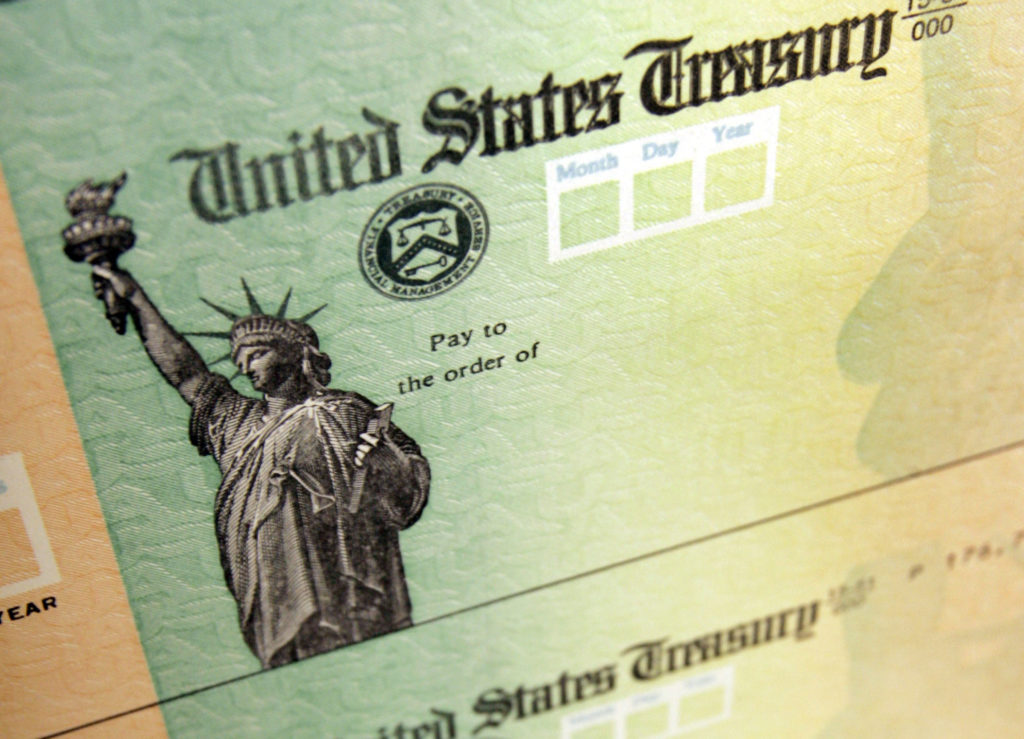On Friday, March 27, 2020, Congress sent to President Trump the largest economic relief bill in U.S. history, a $2.2 Trillion stimulus package which is formally known as the “Coronavirus Aid, Relief, and Economic Security Act” or the “CARES Act” for short. This is a 880 page law which is inserted into the Internal Revenue Code of 1986 (Our tax law) which provides benefits / relief in many different areas from medical supply shortages, access to care, health care workforce, education including student loans, pay check protection, Medicare, Medicaid, OTC drugs, the arts and air carrier work force, but the part of the bill that I started receiving telephone calls regarding immediately upon the House passing of the Act on Friday, was the provision where all (certain limitations apply) adults receive $1,200 in a check in the mail and those families with children (under 17 years old) receive $500 per qualifying child.
Because of the superficial treatment of the Cares Act in the media, most individuals heard that they were receiving money based on their 2019 tax return or if the 2019 tax return was not filed based upon their 2018 tax return. If 2018 or 2019 were pretty much the same no one was concerned, but if they had a baby in 2019 and their return was not filed, or they were pregnant in 2020, or they were a dependent in 2019, but were on their own in 2020, they called with questions regarding what they could do…. concerned that they would miss out on some of the free stimulus money.
The callers’ reaction were based on superficial news coverage of this Act, and I want to spend a little time in explaining the part of the CARES Act that most individuals are interested in, Subtitle B-Rebates and Other Individual Provisions which can be found beginning on page 144 of the Act. I have attached the entire Act on our website for your convenience and review.
First, the check arriving in the mail in 3 weeks, may not be a check, it may be a direct deposit into the bank account that you received your previous tax refunds into.
Second, the payment that you are receiving is technically an advance tax credit for your 2020 taxes. This is positive for those of you who are pregnant right now and expecting a baby in 2020, or for those who had a baby in 2019, but haven’t filed your 2019 Form 1040 tax return, yet. You will not lose out on receiving the “CARES Act” stimulus credit of $500 per qualifying child. You might not receive a payment in April, but you will be able to take the credit when you file your 2020 tax return.
Third, the $1,200 credit / payment ($2,400 in the case of eligible individuals filing a joint tax return) is subject to reduction based upon adjusted gross income (AGI) limitations of $75,000 for individuals (you receive $0 if AGI is $99,000 or greater), $112,500 for head of household (you receive $0 if AGI is $136,500 or greater) or $150,000 in the case of a joint return (you receive $0 if AGI is $198,000 or greater).
Finally, if your circumstances change during 2020 so that your advance credit payment as calculated using 2019 or 2018 tax returns is greater than the credit calculated on your 2020 tax return, no worries you will not have to pay the overpayment you received back to the IRS.
Still have questions? Email us at info@cfo4yourbiz.com. To stay up to date on tax and personal finance topics we invite you, friends, family, and colleagues to follow CFO 4 Your Biz on Facebook at CFO4YourBiz or on our website www.CFO4YourBiz.com.
Eric & Ashley Bremers
CFO 4 Your Biz
Accountants & Business Advisors

